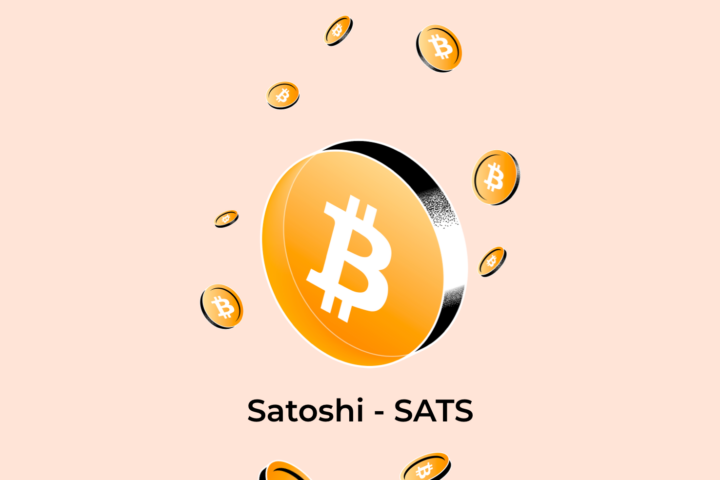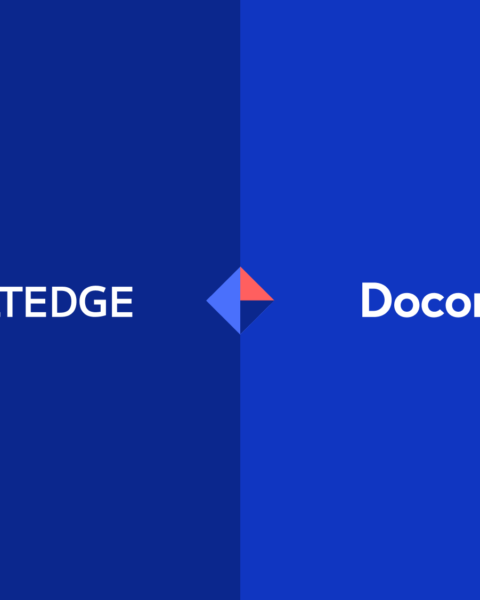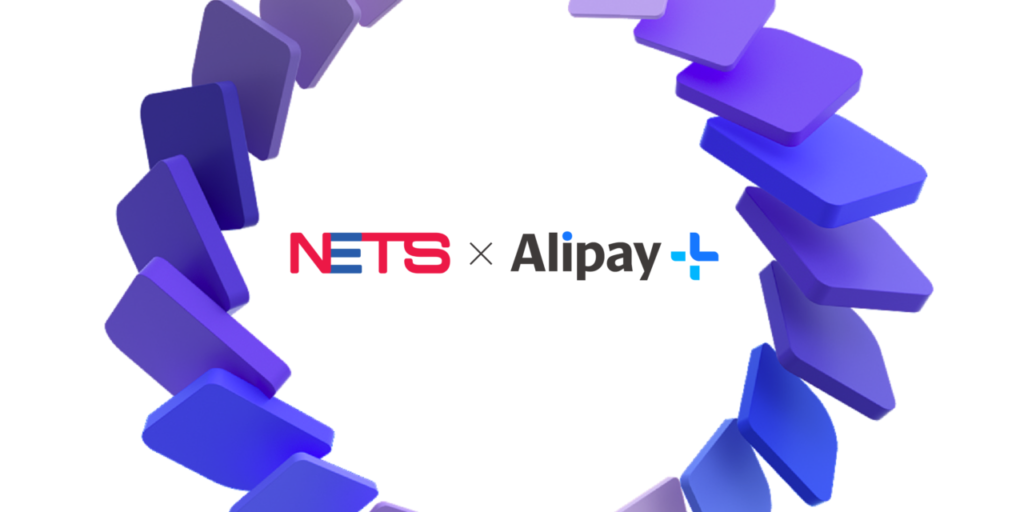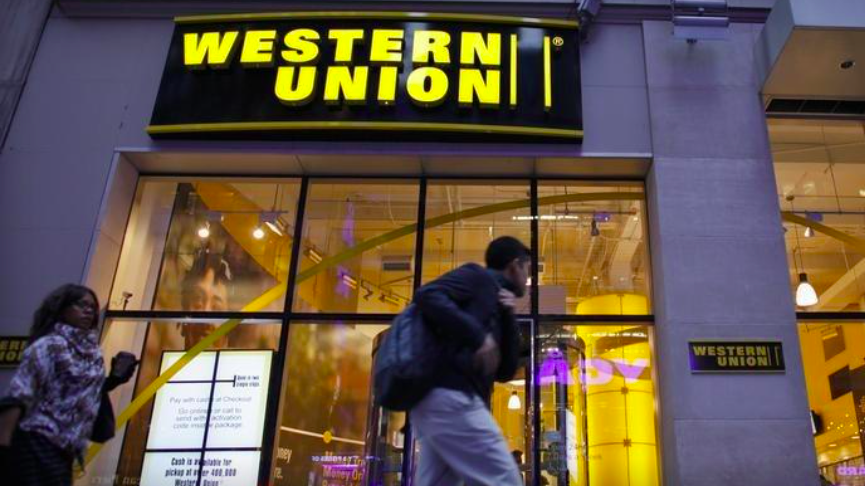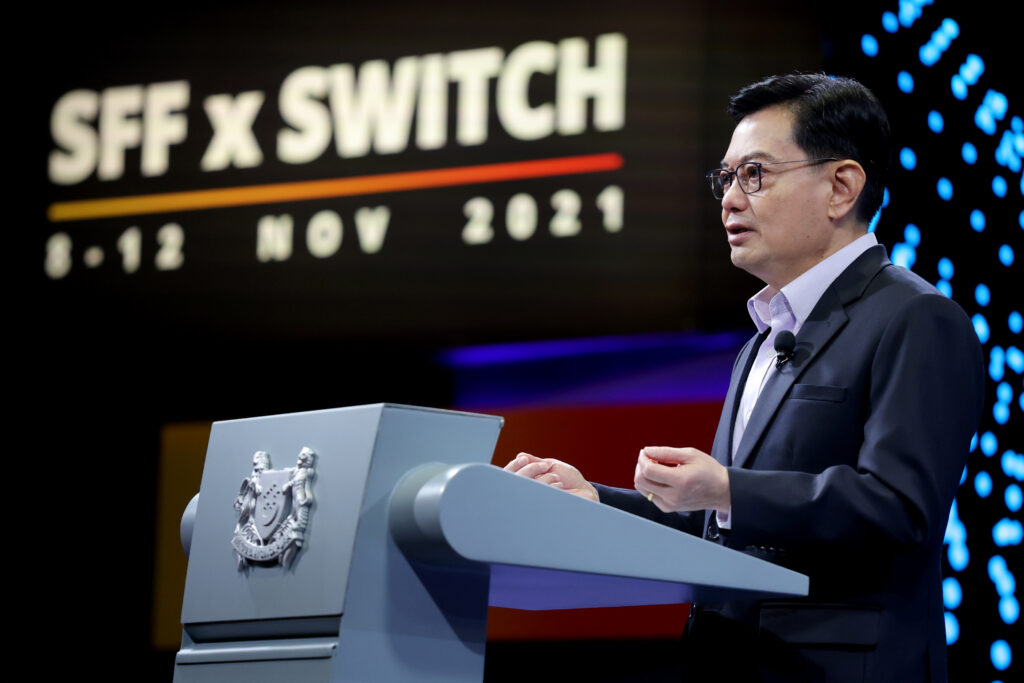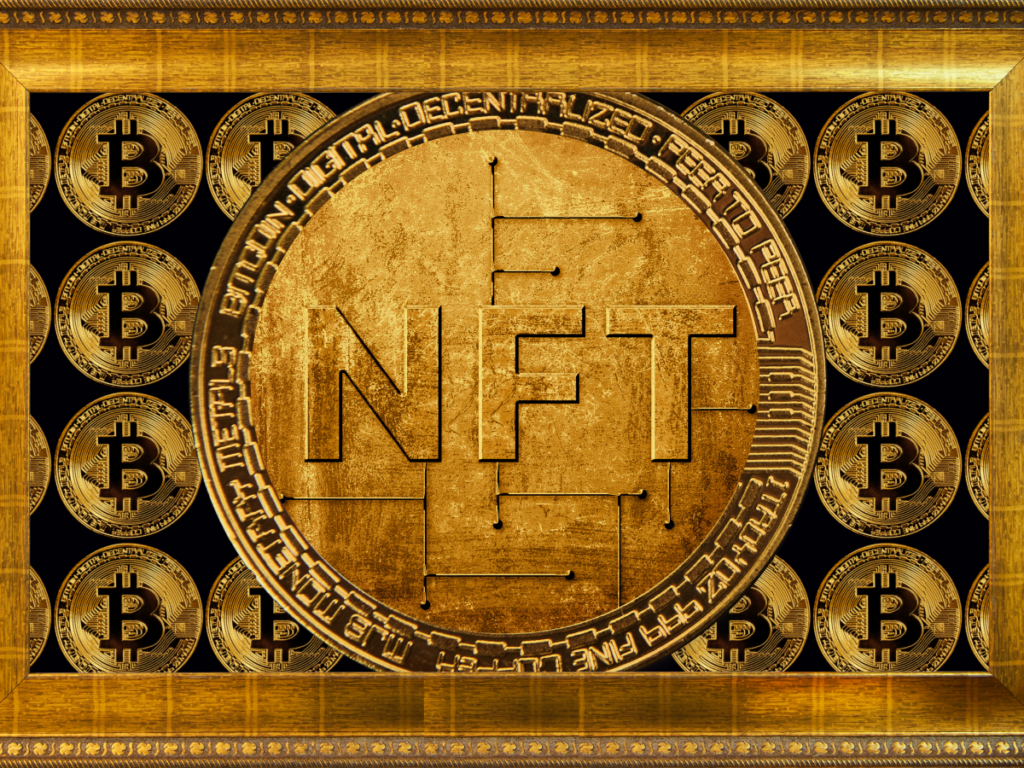Switching to the Satoshi standard and Lightning Network connectivity makes Bitcoin more tangible and easy to use. AAX has made the first move in the crypto space, already providing BTC to SAT
Airwallex bolsters ASEAN presence with regulatory approval in Singapore
Airwallex, a global fintech platform, today announced at Singapore FinTech Festival that its Singapore entity, Airwallex (Singapore) Pte Ltd, has been granted a Major Payment Institution License by the Monetary Authority of Singapore (MAS) under the Payment Services Act. Airwallex is permitted to provide a suite of payment services including account issuance, domestic money transfer, cross-border money transfer, merchant acquisition and e-money issuance.
Airwallex will progressively introduce a suite of product and service offerings that will enable businesses in Singapore to operate and grow across the ASEAN region and globally. This includes a modern global business account, multi-currency wallet, company and employee cards, spend management, online payments, international collection & transfer and other value-add solutions for Small and Medium-sized businesses, as well as an API for larger enterprise businesses that require embedded payments and financial services.
Jack Zhang, CEO and Co-founder of Airwallex said, “We are pleased to have received regulatory approval in Singapore as we continue to make steady progress in Southeast Asia, scaling our payment offerings and solutions in the region for our customers. Receiving this approval reflects our robust policies, compliance framework and risk management systems we have put in place. We will continue to work closely with regulators and partners to ensure we facilitate a safe, effective and transparent way to manage their cross-border financial transaction needs. We look forward to launching our services in Singapore next year and enabling businesses in Singapore to operate globally without borders.”
Founded in 2015, Airwallex is one of the fastest growing financial technology companies today. The company has nearly doubled its headcount in 2021 to over 1,000 employees today across 19 locations globally, including Singapore. In September, the company also announced its entry in Southeast Asia after securing a money service business (MSB) license in Malaysia, followed by news of a US$200 million Series E fundraising round, raising its valuation to US$4 billion as it continues to focus on its regional and global expansion.
NETS to integrate Alipay+ to enhance cross-border digital payments capabilities
Singapore’s payment services group Network for Electronic Transfers (NETS) and Ant Group today jointly announced a plan for NETS to integrate Alipay+ to further enhance the digital payments capabilities of NETS’ local merchants.
Through the deployment of Alipay+ solutions, NETS can facilitate seamless transactions between local businesses and global consumers visiting Singapore, potentially connecting its Singapore merchants with e-wallet users worldwide.
Introduced by Ant Group since 2020, the Alipay+ solutions are designed to make it easy for businesses, especially small and medium-sized businesses to accept different payment methods and conduct cost-effective digital marketing campaigns. It also makes it more convenient for e-wallet users to make payments easily away from their home country.
The adoption of Alipay+ solutions is in line with NETS’ efforts to drive payment technology innovation, to create additional revenue streams and strengthen operational efficiency for its merchants. Merchants will be able to accept payments in Singapore currency from Asia’s local e-wallet holders who will pay in their home wallet currency. This will enable merchants to serve global customers better whilst providing consumers with access to a wider merchant base.
Efforts are underway to integrate the Alipay+ solutions into NETS’ merchant portal with the aim to be operationally ready by early 2022.
Western Union Powers Cross-Border Digital Money Movement with Singtel’s Dash
Western Union, a global leader in cross-border, cross-currency money movement and payments has partnered with Singtel’s Dash to enable international money transfers digitally for Dash’s customers in Singapore.
A Memorandum of Understanding (“MOU”) was signed on October 14, 2021, between Western Union and SingCash Pte Ltd. (“SingCash”), representing Singtel Dash. Dash is Singtel’s all-in-one mobile wallet, offering in-store as well as online payment solutions for customers.
For the first time, Western Union’s digital money transfer capabilities will be integrated with a mobile wallet in Singapore with the transaction experience all native within the Dash app, offering enhanced convenience to Dash customers. After the definitive agreement is signed and integration completed, the service will be introduced in phases, enabling Dash customers in Singapore to seamlessly send money around the world, starting with India and eventually scaling up to the wide scope and reach of Western Union’s global payout network.
Singapore is a vital economic hub, bringing people together from across the Asia Pacific region and lifting them toward prosperity. International migrants working and living in Singapore represent a significant part of the population; this, coupled with the accelerated adoption of digital channels, provides an incredible potential to meet the evolving needs of these individuals as they support their loved ones back home.
“At Western Union we believe that innovative payment solutions should be customer driven,” said Western Union Head of Middle East and Asia Pacific, Sohini Rajola, during the official unveiling at Singapore Fintech Festival on November 8, 2021.
“Western Union innovates like an entrepreneur. As a 170-year-old company operating in the fintech space, we have learned that the mindset of an entrepreneur is ageless. The global reach and scale of our business, powered by technology and innovation, has uniquely positioned us to create a truly inclusive platform. Today, we are excited to partner with Singtel Dash, powering our techfocused strategy to enable customers to reliably and conveniently complete financial transactions with just a few clicks.” Rajola added, “It’s an honor to work as like-minded companies, inspiring each other with innovative thinking and concepts for building a cross-border financial ecosystem that addresses consumer needs, both today and tomorrow.”
Gilbert Chuah, Head of Financial and Lifestyle Services at Singtel said, “Since the onset of COVID, digital payment use has risen, with people performing more transactions digitally from the safety of their home. Our partnership with Western Union answers to our customers’ demand for a simpler and more convenient way to send money internationally. We are building Dash to be the all-in-one wallet, so that our customers can conduct their daily transactions easily on a single app. As payment technology evolves, we will be looking to enable even more innovation on the Dash app and bring more value to our Dash customers.”
Western Union’s strategy to open its platform and worldwide financial network to serve third-party companies has established it as a unique partner for global money movement, enabling organizations in telecommunications, technology, financial services and other sectors to enhance services for their customers. The Company offers a unique platform with a global scale and local market knowledge to enable international payouts into billions of bank accounts and millions of wallets and cards, across more than 125 countries and territories, with real-time capabilities in 100 of these countries. Additionally, it also offers payout in cash in approximately 600,000 retail locations in 200+ countries and territories.
MAS and BSP to Pursue Cross-border Payment Linkages
LiveThe Monetary Authority of Singapore (MAS) and the Bangko Sentral ng Pilipinas (BSP) today signed an enhanced FinTech Cooperation Agreement (CA) to facilitate interoperable payments between Singapore and the Philippines.
The enhanced CA builds on the earlier 2017 agreement to broaden the scope of FinTech collaboration and partnership between MAS and BSP. The CA will facilitate the linkage of both countries’ real-time and QR payment systems, to provide instant, seamless and low-cost cross-border payments. This is a significant initiative given the sizeable remittance flows between Singapore and the Philippines, which totalled SGD 2.89 billion1 in 2020; and cater to the pre-pandemic yearly average of approximately 900,0002 travellers between both countries.
MAS and BSP’s collaboration in payment infrastructure projects align with the G20’s efforts to address existing frictions in global cross-border payments and contributes to the Association of Southeast Asian Nations (ASEAN) goal of establishing regional payments integration by 2025. Both central banks will also explore multilateral interoperability of these projects, in keeping with regional efforts to establish further linkages within ASEAN and with countries outside the region.
Ravi Menon, Managing Director of MAS, said, “The enhancements to the MAS-BSP FinTech Cooperation Agreement will help fast track payments connectivity between Singapore and the Philippines. Critically, the linking of our QR and real-time payment systems also marks a concrete step towards the vision of an ASEAN network of interconnected real-time payment systems.” 5. Benjamin E. Diokno, Governor of BSP, said, “The BSP is taking the initial step in linking the Philippine payment system with those of our ASEAN neighbours, beginning with Singapore. Effectively linking our QR and real-time payment systems will enhance the safety and efficiency of cross-border payments through the smoother and seamless international transfer of funds, ultimately promoting the financial welfare of Filipinos that regularly use cross-border payment services. These beneficiaries may include overseas Filipinos; export, import and tourism businesses; as well as firms with affiliates or investors abroad. This enhanced CA will further strengthen our ties with Singapore and take us a step closer towards having an integrated and interoperable cross-border payment system in the ASEAN region.”
Singapore launches National programme to deepen AI capabilities in financial services
LiveThe National Artificial Intelligence (AI) Programme in Finance was launched today at the Singapore FinTech Festival x Singapore Week of Innovation and TeChnology (SFF x SWITCH) 2021 by Mr Heng Swee Keat, Deputy Prime Minister.
The Programme is a joint initiative by the Monetary Authority of Singapore (MAS) and the National AI Office (NAIO) at the Smart Nation and Digital Government Office (SNDGO). It aims to build deep AI capabilities within Singapore’s financial sector to strengthen customer service, risk management, and business competitiveness.
The Programme is part of Singapore’s broader National AI Strategy1 and seeks to enhance the ability of financial institutions (FIs) to research, develop and deploy AI solutions. I
The Programme currently comprises various initiatives – Initiative Description NovA! – an AI technical platform to generate insights on financial risk. In the initial phase, NovA! will help FIs harness AI to assess companies’ environmental impact and identify emerging environmental risks.
NovA! will be developed by Aicadium, a Temasek portfolio company, other local FinTech firms and Singapore-based banks, and will include additional use cases in subsequent phases.
Launched in 2019, the National AI Strategy aims to establish Singapore as a leader in developing and deploying scalable, impactful AI solutions, in key sectors of high value and relevance to our citizens and businesses by 2030. National AI Projects were renamed National AI Programmes to better reflect the scope of work under the initiative. Veritas An AI governance initiative to help FIs utilise AI and Data Analytics (AIDA) responsibly based on MAS’ fairness, ethics, accountability, and transparency (FEAT) principles. The initiative includes developing the Veritas Assessment Methodology and Veritas Toolkits, and the Veritas Ecosystem, Anti-Money Laundering / Countering Financing of Terrorism (AML/CFT) Surveillance and Analytics Programme (ASAP) A programme which focuses on enhancing analytics for AML/CFT surveillance.
One key initiative is COSMIC (Collaborative Sharing of Money Laundering/Terrorism Financing Information and Cases) to be rolled out in 2023. The secure data sharing platform enables FIs to share and analyse information on customers or transactions that cross material risk thresholds. Such information will help FIs identify and disrupt illicit networks, and safeguard Singapore as a financial centre.
The National AI Programme in Finance will create good jobs for citizens and commercial opportunities for businesses.
Hong Kong FinTech Week 2021: OneConnect Underscores Importance of FinTech to Greater Bay Area Development
An integrated, seamlessly connected financial platform and FinTech talent are vital to the development of the Greater Bay Area (“GBA”), says Jessica Tan, co-CEO of Ping An Group. The GBA is a huge and exciting area. Ping An, together with its associate company OneConnect is always willing to use technology as an enabler for the GBA’s digital economy, she said. OneConnect Financial Technology Co., Ltd. (short for “OneConnect “,NYSE: OCFT) is a leading technology-as-a-service platform provider.
Ms. Tan underscored the importance of cultivating Hong Kong’s FinTech capabilities in a keynote delivered at Hong Kong FinTech Week. Held from November 1-5, this year’s event gathered world-renowned speakers, regulators, and industry players to “scale the FinTech future together.”
“Building a seamless digital economy is the greatest opportunity in the region. But practically, we must address three key issues in order to capture and maximize that opportunity. This is not something that an individual entity or organization can solve — it requires a collective effort across the entire GBA. This is where Hong Kong, the region’s international finance hub, can take the lead and harness technology to make FinTech platforms more interoperable,” said Ms. Tan.
Building a shared digital economy across the GBA
With Hong Kong’s financial expertise, Guangzhou’s manufacturing prowess and Shenzhen’s technological capabilities, the GBA is the perfect region to develop a world-leading digital economy. However, the region will need to address key challenges surrounding governance and regulation, Small and Medium-Size Enterprises (SMEs) support, and local talent if it wants to transform these opportunities into a reality, said Ms. Tan.
The GBA involves three different jurisdictions, each with its own government authorities, standards, and procedures. All these need to be considered when developing a connected financial platform, said Ms. Tan. At the same time, regulators and organizations need to be clear on how financial services can empower SMEs with the access and capabilities to operate seamlessly across regions, particularly given half of all trade in the GBA is conducted by small businesses. Lastly, Hong Kong needs to find and nurture the right talents to fuel innovation and development.
Technology as an enabler for the GBA’s digital economy
According to Ms. Tan, technology is essential to resolving these issues and making platforms truly interoperable across the GBA. Notably, Hong Kong should seek to consolidate its various government data and services, similar to the one-stop sandbox platform proposed by regulatory authorities to enable GBA start-ups to develop cross-border fintech tools. At the same time, data should be available across regions to ensure that various jurisdictions and government entities adhere to the same standards — all while delivering a seamless experience to clients and companies.
OneConnect has already established such a platform to empower all enterprises, including SMEs, to participate in, and prosper from, the digital economy. Earlier this year, the company celebrated the first anniversary of Ping An OneConnect Bank (“PAOB”), the first virtual bank in Hong Kong to use alternative data models for risk assessment. PAOB uses trade data and other information to assess and predict risk in order to provide non-collateralized loans for SMEs. To date, PAOB has served HK local SMEs with total assets reaching HK$1 billion.
OneConnect has also established the Guangdong-Hong Kong-Macao Greater Bay Area Port Logistics and Trade Facilitation Blockchain Platform to facilitate cross-border trade between merchants, and the Guangdong SME financing platform to improve lending efficiency for SMEs.
In addition to building the right platforms, OneConnect is nurturing the talents of tomorrow and bridging skillset gaps across the region. Its new internship program connects aspiring professionals with established financial services and technology experts to encourage knowledge transfer.
Furthermore, its parent company, Ping An Group has launched an incubator accelerator program for the GBA. The program plugs up-and-coming companies into an open Fintech platform that serves existing financial services, companies and corporations — in turn encouraging and growing entrepreneurs within the region.
“The GBA is a huge and exciting area with plenty of opportunities. But we can only take advantage of these opportunities with a collective effort that gives full play to Hong Kong’s position as an international financial center. By using technology to bring financial institutions, FinTech companies and people together, we can promote greater cross-border collaboration and turn this vision into a reality,” said Ms. Tan.
Consumers lay down a US$250bn challenge to financial institutions as they seek more flexible, customized digital products
By 2030, 60% of global consumers will have made a transaction using a unit of value other than fiat currency, while 73% of global consumer payments will be processed by non-financial institutions on the Internet of Payments.
Revealed on the first day of the Singapore FinTech Festival 2021, these forecasts by market research firm IDC reinforce the need for incumbent financial institutions to adapt their technology quickly for a market in which consumers expect more choice in terms of units of value – including digital assets and loyalty program points – as well as more tailored payments and credit propositions.
They also spell out the cost of failing to adapt: US$250 billion of payments revenue could otherwise move to non-financial institutions by 2030, according to IDC estimates.
“The payments industry is undergoing a massive transformation: non-cash payment volumes are soaring, on-demand payments are gaining traction, and cloud computing and new technology have unleashed a wave of innovation, such as BNPL,” said John Mitchell, CEO of Episode Six. “This is creating a more level playing field for new entrants, and significant challenges for incumbents. The research we’ve unveiled today shows why financial institutions need technology that transfers any unit of value, as well as designed to be configurable and easily integrated into existing financial ecosystems, allowing our clients to bridge the old with new.”
“Financial institutions and non-financial institutions are both vying for a key role in the ownership of payments,” said Cyrus Daruwala, Managing Director IDC Financial Services & FinTech. “IDC forecasts that by 2030, 73% of consumer payments will be handled by non-FSIs through the Internet of Payments. Yet, FSIs are far from out of the payments game – they need to reshape the role they can play in payments of the future and the next-gen payments
technology to succeed.”
IDC’s data shows that 73% of financial institutions around the world have technology infrastructures for payments that are ill-equipped to handle payments for 2021 and beyond. For many incumbents, that means existing payments infrastructure needs to be upgraded payment workflows need to be more data-driven, and risk management needs to be more flexible to adapt to the regulatory requirements for non-fiat currencies and other units of value.
Legacy tech holds banks back yet legacy technology is costing financial institutions more and more, restricting investment in vital digital transformation. IDC estimates that financial institutions’ global spending on payments technology will double from US$39.7 billion in 2020 to US$80.3 billion in 2030.
“Banks need to embrace the new types of payments that recognize that value comes in many forms, but they have a lot of work in front of them,” added Episode Six’s Mitchell. “There are infrastructure and process bottlenecks, resources are being drained on maintaining outdated and disparate systems, and siloed thinking is preventing innovation. Risk aversion can also lead to lost opportunities.”
With the rise of embedded finance, and Banking as a Service solutions, non-financial players can offer payments solutions and are increasingly owning the customer relationship. By 2030, IDC forecasts that 74% of digital consumer payments globally will be conducted via platforms owned by non-financial institutions.
Although banks will no longer dominate payments as they have in the past, this does not mean they may be sidelined altogether. Instead, they need to rethink how they interact with fintech, as well as the new generation of blockchain-based digital finance, provides, said Mitchell at Episode Six.
“Users demand the unified and polished interfaces and smart data-driven products offered by fintech,” he argued. “Economies need the stability and consumer protection that exist when regulated institutions provide financial services, drawing on their long-standing strengths in risk management and compliance. For banks and fintech, the choice, with a few exceptions, will ultimately be to converge or crumble.”
Australia’s CBA breaks ranks to offer crypto trading
Commonwealth Bank of Australia will become the country’s first to offer retail clients crypto services, Australia’s largest bank said on Wednesday, marking a change from the sector that had refused to do business with cryptocurrency providers.
Starting with a pilot this year, Commonwealth Bank will partner with Gemini Trust Company LLC, a New York-based crypto exchange, to offer trading in 10 cryptocurrencies through its banking app, which is used by about 6.4 million customers.
Commonwealth Bank of Australia will become the country’s first to offer retail clients crypto services, Australia’s largest bank said on Wednesday, marking a change from the sector that had refused to do business with cryptocurrency providers.
Starting with a pilot this year, Commonwealth Bank will partner with Gemini Trust Company LLC, a New York-based crypto exchange, to offer trading in 10 cryptocurrencies through its banking app, which is used by about 6.4 million customers.
At the time, Comyn said CBA was studying the space but had also previously cancelled some business accounts of customers who were doing business with cryptocurrencies.
CBA said its decision to offer the service had been driven by growing client demand for digital currencies and follows other fintech offering crypto services such as Square, PayPal Holdings (PYPL.O) and British-based Revolut.
DBS is First Bank in Southeast Asia to Join Hedera Governing Council and Run Network Node
DBS Bank, a leading financial services group headquartered and listed in Singapore with a presence in 18 markets, has joined the Hedera Governing Council, the group of diverse organizations responsible for stewarding the Hedera network – the most used, sustainable, enterprise-grade public network for the decentralized economy. The Hedera Governing Council comprises heavyweights in the technology, corporate, non-profit and academic arenas.
As the first and only bank in Southeast Asia to join the Governing Council, DBS will explore further opportunities and potential use cases to leverage the vast potential of blockchain and distributed ledger technologies as it continues to reimagine the future of banking.
DBS has been actively leveraging blockchain to offer solutions in areas including cross-border payments and settlements as well as trade financing. With asset digitalisation and tokenisation fast gaining traction, DBS also launched its blockchain-backed digital asset ecosystem last year. Anchored by the DBS Digital Exchange, DBS is able to offer corporate clients and accredited investors an integrated suite of solutions across the digital asset value chain
Jimmy Ng, Group Chief Information Officer and Head of Technology & Operations at DBS, said, “DBS is pleased to join some of the world’s most established organisations on the Hedera Governing Council as we collectively seek to uncover the vast potential of blockchain and distributed ledger technologies. We have been leveraging emerging technologies to reshape the future of banking and have in recent months brought to market a number of innovative offerings powered by blockchain to help our clients seize opportunities in the new normal. We look forward to joining our peers on the Hedera Governing Council in exploring further use cases that bring tangible benefits to our stakeholders.”
“We are pleased to bring this relationship to fruition and have DBS join the Hedera Governing Council,” said Mance Harmon, CEO of Hedera Hashgraph. “In our discussions over the last few years, it has been clear that they are a leader in both the management and in building an ecosystem for digital assets, as well as in emerging adoption of blockchain and DLT to drive efficiencies across their entire business. We look forward to collaborating with them and the other council members, themselves leaders in the finance, payments, legal, and technology arenas, to continue our mission for the Hedera network to serve as the trust layer of the internet.”
Enjin to Hold Second Annual NFT Awards in Decentraland
Enjin, the leading ecosystem for NFTs, today opens nominations for the second annual NFT Awards. Running from today until November 26th, nominations and community voting for the NFT Awards are now open on nftawards.org. The second edition of the program will celebrate the Metaverse, honoring projects that are driving the future of human experiences through NFTs. The awards ceremony will take place on January 12th, 2022 in Decentraland.
Witek Radomski, Co-founder & CTO of Enjin and NFT Awards judge, said, “We established the annual NFT Awards to commend innovation in our industry, and we look forward to recognizing the incredible progress made within the Metaverse. Following a standout year for the NFT space, this community-driven event will feature and celebrate the world’s most influential NFT projects, and we invite all creators and collectors to submit your favorite projects for consideration today.”
Nominees of the NFT Awards will be determined entirely by community submissions and voting, with the top ten public votes in select categories gaining a spot before an expert judging panel. The confirmed list of judges includes:
- 3LAU, Musician / CEO & Co-founder of Royal.
- Micah Johnson, Creator of Aku / Artist and 2020 NFT of the Year winner.
- Holly Wood, Head of Creator Relationships at Rarible.
- Dean Takahashi, Lead Writer at VentureBeat’s GamesBeat.
- Marco Marchesi, CTO of The Fabricant.
- Witek Radomski, Co-founder & CTO at Enjin.
- Frank Downing and Nicholas Grous, Analysts at ARK Invest.
- Ashley Higgins, CEO of Product Hunt.
- Patrick Barile, COO of DappRadar.
- Aaron Khoo, Head of Listings & Ecosystem at CoinMarketCap.
- Additional judges to be announced!
Nominations can be submitted on nftawards.org for 10 awards categories, including: Best Avatar; Best Collaboration; Game of the Year; Best Digital Fashion; VR/AR; Best Virtual World; Newcomer Game; Utility; Most Innovative Art; and Project of the Year.
The event will feature members from every corner of the crypto sphere, from NFT creators and game developers, to leading crypto organizations and metaverse projects. The program will be supported by Enjin’s partners VentureBeat, Crypto.com, Decentraland, Rarible, CoinMarketCap, the Blockchain Game Alliance, DappRadar and Product Hunt.
Micah Johnson, whose work ˈsä-v(ə-)rən-tē won 2020 NFT of the Year, concluded: “The same year I won NFT of the Year, I was carrying my paintings in the rain to a local bar and carrying them home when none of them sold. NFTs have empowered me to spread my message thanks to the support of collectors who believed in me, and the NFT Awards program is providing a venue to recognize and elevate the work of fellow creators in the NFT community.”
Please visit nftawards.org to nominate or vote for the NFT Awards, or get in touch at nftawards.org/contact if you believe you fit the criteria for the expert judging panel.



